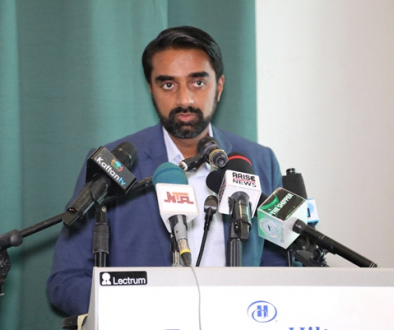Presidential Magic
By May 29, 2015 when the Goodluck Jonathan administration expired, fuel queues had returned and people feared the worst for Buhari’s first few months in office. The people groaned under the last bits of Jonathan’s rule as Nigeria was slowly being brought to its knees by fuel importers with a score to settle with the outgoing administration. The screamed, “let there be fuel!” Buhari came in and without much fuss but a little bit of “magic”, there was fuel. Nigerians should commend the President’s deft handling of the situation. Many missed Buhari’s sleight of hand in dealing with the oil marketers. Some marketers must have supplied fuel hoping this would be in lieu of being asked to refund monies (from the subsidy scams), the majority seeking the goodwill of a new administration, quietly complied with the request to distribute fuel imported by the State Oil Company – NNPC. In all, aided by some Presidential magic, the fuel queues have all but disappeared – for now, though the country continues to depend on swapping crude for refined product.
I am one of those who admire the strong, silent types who get the job done, however when the job is about tracking how much of Nigeria’s assets have been stolen (for example through the fuel subsidy scams), stopping it and getting it back, can it ever be as simple as by magic?
According to GIABA, an institution of the Economic Community of West African States (ECOWAS) responsible for facilitating the adoption and implementation of Anti-Money Laundering (AML) and Counter-Financing of Terrorism (CFT) in West Africa, Nigeria loses in excess of $20bn annually to theft or wastage. We are currently in a cash crunch as a nation and we desperately need our money back. As a unpleasant aside, imagine just $5bn of such funds in the hands of ex-militants; or in the hands of Boko Haram; or in the hands of those who would influence policies and programmes of government for their own ends and not for the public good – these sums could be used to buy policies, arm militias, destabilize communities, push anti-people agendas and policies, cripple and hold a sitting President to ransom – the people of Nigeria must not allow those who steal public funds to get away with it or keep the proceeds of their crime.
Mr. President has done well to vow to recover funds looted under the Jonathan administration and to signal that this will start to occur over the next 90 days. So many have eagerly awaited the anti-corruption drive of the new administration. This is the central plank of the unequivocal mandate delivered by the people and one against which Buhari’s presidency would certainly be measured. Beyond the rhetoric: beyond the hopes and dreams of change, people now want to see concrete actions begin. Non-recovery of stolen assets is a threat to the change we seek: a threat to national security and a threat to the continued Sovereignty of our beloved country, Nigeria.
Since the President has not yet stated how he intends to go about the recovery of the looted funds, perhaps there is still an opportunity for you and I to seek to thrown in our one kobo’s worth of advice. Perhaps a wholesale probe of the Goodluck Jonathan administration is not the very best approach as it raises the question, are they the only ones who have been looting? Was there no looting in previous civilian and military administrations? Perhaps a neater arrangement could be to choose those few, specific sectors/transactions responsible for more than 80% of the leakages and go as far back as necessary in the probe.
My top five would include the oil and gas sector – since we cannot deal with corruption in Nigeria without broaching the fuel subsidy issue; power sector reforms – since the Goodluck Jonathan and Olusegun Obasanjo administrations spent very heavily on these items; the agriculture transformation agenda because so much was spent by Yar’ Adua and Goodluck, so much impact claimed but very little identifiable change achieved in the lot of our poor smallholder farmers; national security and defense spending – the amnesty programme – payments to ex- and serving militants like Tompolo, key figures from MEND, O’odua Peoples Congress (OPC) factions, the National Security Adviser’s budget that ballooned to over N4.62trillion in 5 years in the name of fighting Boko Haram; and finally, works and housing – for routine looting through large procurements.
Taking a sector/transactional approach should cast off the air of a witch-hunt and keep people focused on the issues and downplay the politics (by de-personalizing the probes). I propose five technical committees should be set up to look in to each of these areas and a sixth one to receive the findings and harmonize them putting forward concrete actions that should be taken by law enforcement and anti-corruption agencies at home and abroad since the US and others have offered assistance.
On Thursday, 25th June 2015, His Excellency, The Vice-President of Nigeria, Prof. Yemi Osinbajo, SAN, GCON will deliver the keynote address at the 3rd Annual Christopher Kolade Lecture on Business Integrity – themed “Beyond Compliance”, hosted by the Convention on Business Integrity. It is expected that the Vice-President would use the opportunity to outline the Buhari Administration’s approach to curbing corruption and outline how that would impact on the business community.



